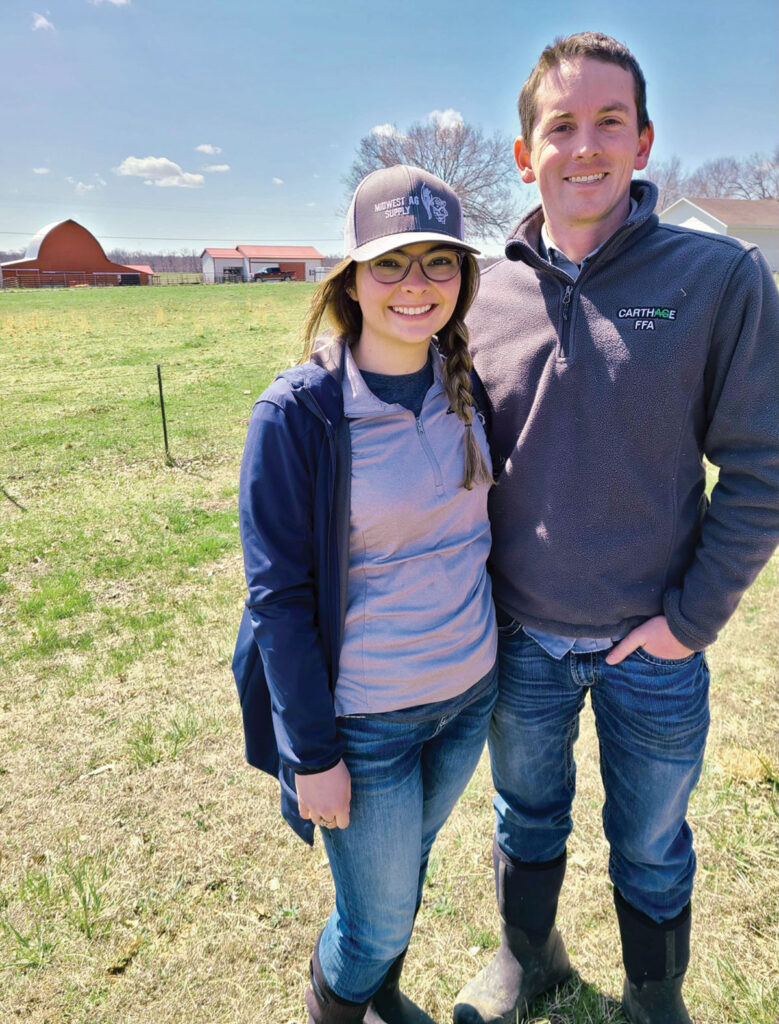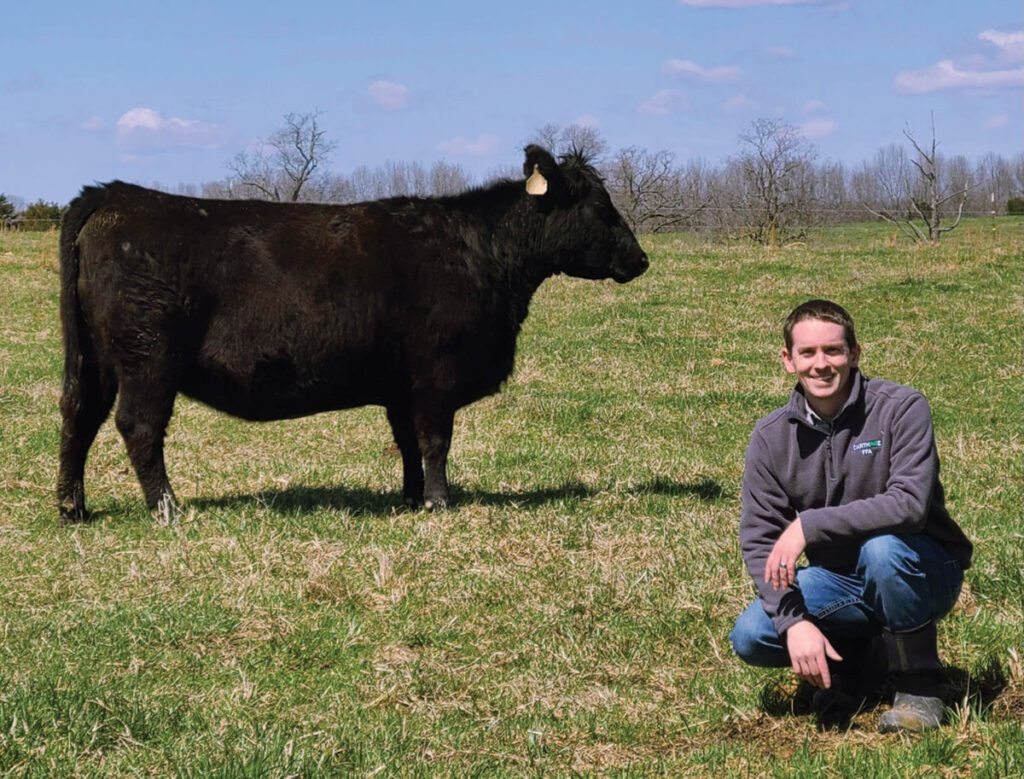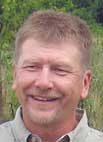
Justin Mauss has strong roots in the cattle industry
Justin Mauss, agriculture teacher and FFA advisor at Carthage Technical Center, Carthage, Mo., always knew he wanted a career in agriculture, like his father and grandfather before him, going all the way back to the late 1800s and segwaying to 2020, when he was named Missouri’s Outstanding Early Career Ag Teacher of the year.
“It was an honor to receive that award,” Justin said. “Last year was a rewarding year.”
The Missouri Vocational Agriculture Teachers Association recognizes the efforts of effective teachers who work tirelessly to provide a high-quality education to their students. Ag teaching can be a demanding career.
“Beginning in January through April, we hit the contest seasons, state degrees and proficiency awards really hard. We also spend a significant amount of time before and after school working with our kids. It’s nothing to have a 60- to 70-hour work week. If a teacher doesn’t manage their time well, the burnout rate is really high,” Justin noted.
When he isn’t nurturing the minds of future farmers, Justin can be found at Mauss Farms near Climax Springs, Mo., nurturing his black Angus herd. The 900-acre farm was originally founded by Henry D. Mauss in the late 1800s. Justin’s grandfather, Dean Mauss, started the family’s first commercial Polled Hereford cow/calf operation after returning from a stint in the United States Air Force in the early 1950s.
The herd evolved over time into a black Angus operation heavily influenced by the Herefords, and is still in operation today.
Justin grew up on his parents 100-acre farm in Bois D’Arc, Mo., where they grew hay for the family’s Climax Springs operation. He attended Ash Grove High School focusing on FFA and graduated in 2011. He then attended Missouri State University, graduating with a degree in agriculture education. Currently, Justin is in his sixth year of teaching at Carthage Technical Center.
Justin’s grandfather’s were both very influential in his career as an agriculturalist.
“I grew up helping my grandpa feed cattle. I learned a lot of my basic cattle skills from my grandfather W.D. Pipkin. I learned how to talk to people in the cattle business, I learned how to market my cattle, market myself and how to take care of everything on the animal husbandry side of things. My grandfather on my fathers side, Dean Mauss, was a big influence in the stewardship of the land. He served on the very first Soil and Water Conservation District for Camden County. He also served for fifty years with the Camden County Farm Bureau board where he served as President for several years. Stewardship and conservation of the land was something he took great pride in, my father takes great pride in, and by acclimation I take great pride in those things as well.”
Mauss Farms operate a commercial cow/calf operation consisting of 110 pairs of black Angus. They also have a purebred side of the operation that are marketed online or by word of mouth. They also finish out beef and sell replacement heifers and bulls.
Their priority is ensuring the cattle they raise are profitable in a cow/calf operation and performing well in the feed lot. Mauss Farms utilize an all-natural breeding program. They also sell halves and quarters of their butcher beef.
Mauss Farms market most of its cattle through Miller County Stockyard. Once the calves are weaned, they are backgrounded for approximately 90 days, then sold.
Calving takes place twice per year, beginning Sept. 1. They strive to have everything done by Nov. 1. Spring calving is pushed back to mid-January, and they like to be done by the middle of March.
Mauss Farms is a 100-percent family operation. They do all the work themselves.
“My dad Mark, and my uncle Daniel, do the majority of the work up north in Climax Springs,” Justin stated. “They’re the ones that keep the home fires burning. It’s one of those things where we have to work closely together, and it’s been that way since the 1800s. That’s how we run it.”
There are 300-acres of open pasture and the remainder is forested land.
The pastures consist of fescue, clover, lespideza, orchard grasses and warm season grasses. The bulk of the operation is grazing April 1 through Oct. 1. Very little hay is fed during this time as they strive to keep a good cow-to-pasture ratio. The cows are periodically supplemented with range cubes and cake.
They supplement with Crystalyx protein tubs and all cows and calves are kept up to date on vaccinations. Plus, they worm regularly.
Justin’s goals for the future are continuing the stewardship of the land and cattle that were passed down through the generations as-well-as continuing the legacy of the Century farms preserving them for future generations.
When Justin isn’t busy with his many agricultural pursuits, he can be found at home in Carthage with his wife Kelsey who is also a good hand on the farm.







